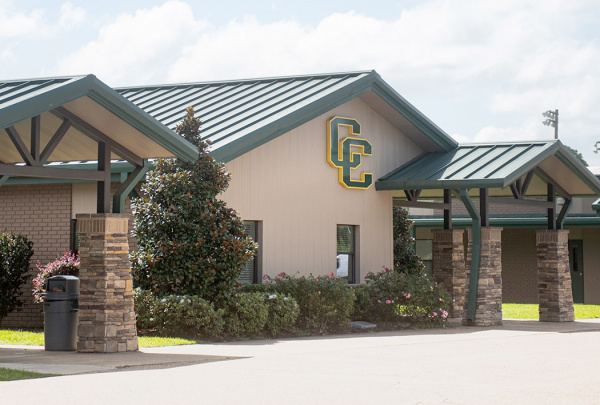How should we respond to Cedar Creek lawsuit?


It’s been an intense year for what we could generally call “legal issues” in the Ruston and North Louisiana area.
Back in May, the Associated Press leaked two-year-old body camera footage of Louisiana State Police officers tasing, beating and dragging Ronald Greene in Union Parish after he led them on a high-speed chase following an attempted traffic stop in Monroe.
Greene, a Black man, died that night. Officers originally told the family he died in a car crash, and many reports since the AP leak indicate that officers intentionally hid and lied about their body camera footage, including one trooper from Ruston.
In June, a Ruston man was arrested on child molestation charges for allegedly sexually abusing a student at the Louisiana Center for the Blind in 2018 while he was a summer instructor there.
He has since been indicted by a grand jury and awaits trial.
That arrest was one slice of fallout from a nationwide movement of survivors telling their stories of sexual assault, discrimination and other issues at the LCB and other training centers affiliated with the National Federation of the Blind.
And now of course, Cedar Creek School and various employees and families associated with it are facing a lawsuit from another family who claims their son was sexually battered and bullied in extreme ways for roughly eight months last school year.
Aside from the geographic area and the year the stories have come out, not much links these three events on the surface.
But each one sparked some kind of public outcry, particularly on social media.
It doesn’t appear to have the same staying power as the murder of George Floyd, but for a while there Ronald Greene’s story was the primary rallying cry for the ongoing push for law enforcement accountability.
The entire National Federation of the Blind issue started on social media in the first place. Even the case here at the Ruston-based center was first told on Facebook before the larger movement encouraged the survivor to bring her story to the Ruston Police Department.
And now the Cedar Creek story — wow. This lawsuit has truly struck a nerve deep within our community, as evidenced by the constant, sustained and at times vitriolic circulation of discourse about it on social media over the past week.
Experiencing each of these three dark and weighty stories this year begs certain questions, such as, “Has the world gone crazy, or was it always this way and we just couldn’t see it as often?”
Have the effects of this internet age made things better or worse?
Like any tool, I’d argue it all depends on how it’s used.
Public outrage can be a powerful tool. Internet communication has given the common man more power than ever to send a message to institutions that they can’t operate in the shadows anymore.
Social media gave survivors across the NFB the power to demand change in a way that’s much harder to ignore than individual emails to HR. The weight of online momentum was unquestionably a factor in the structural changes toward transparency that institution has taken this year.
Public outrage can also be a tool for incredible harm.
Extreme responses are often the name of the game on the internet. Something reasonable like “Cedar Creek has some explaining to do when they get to court” quickly snowballs into “Everyone at Cedar Creek from top to bottom is complicit and needs to go.”
In situations like that, an over-aggressive public response can create more victims, more pain, than there already was.
I believe it’s right and proper to be upset, even outraged, at the notion that something like what this lawsuit alleges could have happened at a local school.
It’s always right to believe victims. That doesn’t mean you pre-convict the other side, but you allow yourself to process the potential that what is being claimed is true, no matter how unsettling.
It’s right to demand answers and want to see the truth come out.
It’s not right to pretend to know all the facts when no one really does yet, and it’s even worse to generalize and dehumanize one side or another.
Public attention can get results. Public hate produces nothing good.
It takes nuance, discretion and a level head to walk this line — attributes that aren’t exactly hallmarks of the social media age.
But we can do it. We must.
Caleb Daniel is the Ruston Daily Leader’s Digital News Editor. Caleb is a Louisiana Tech University graduate who covers the Lincoln Parish Police Jury and schools for the Ruston Leader.

